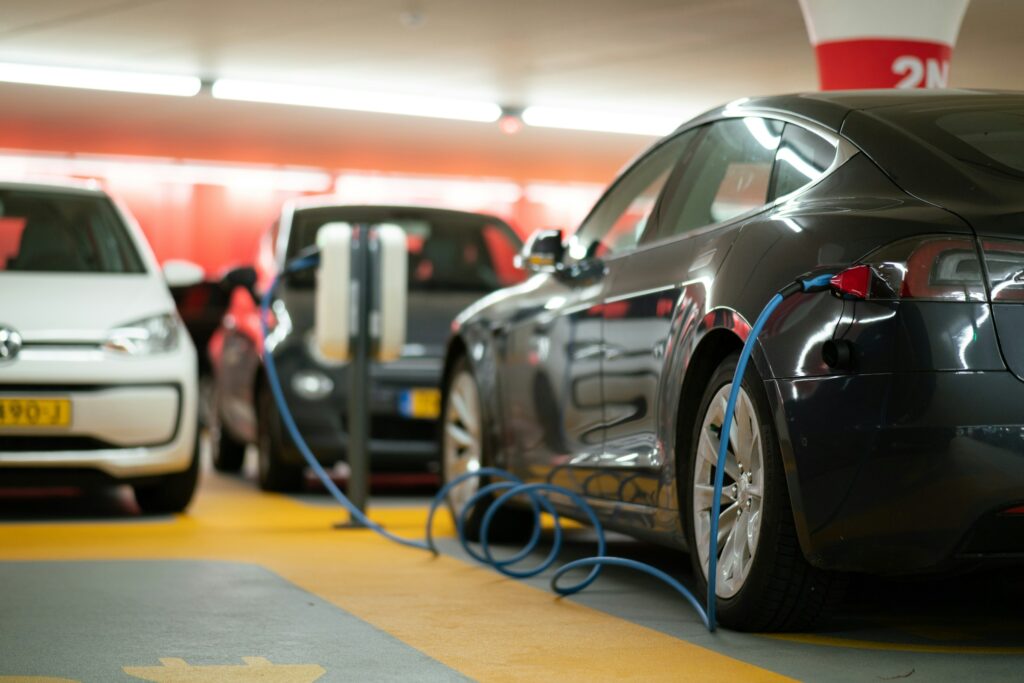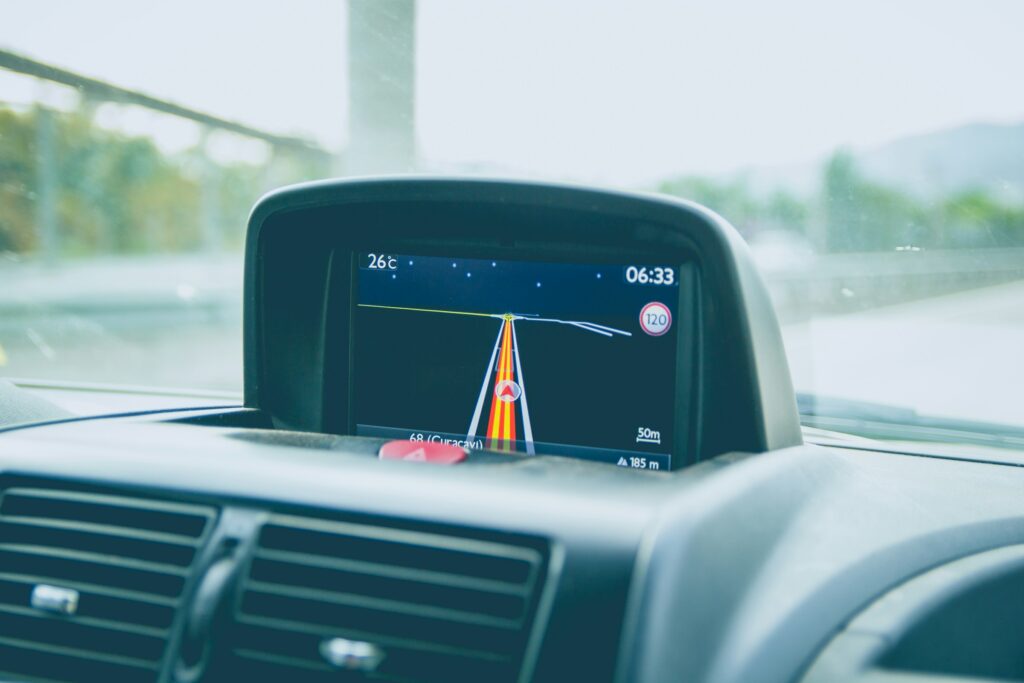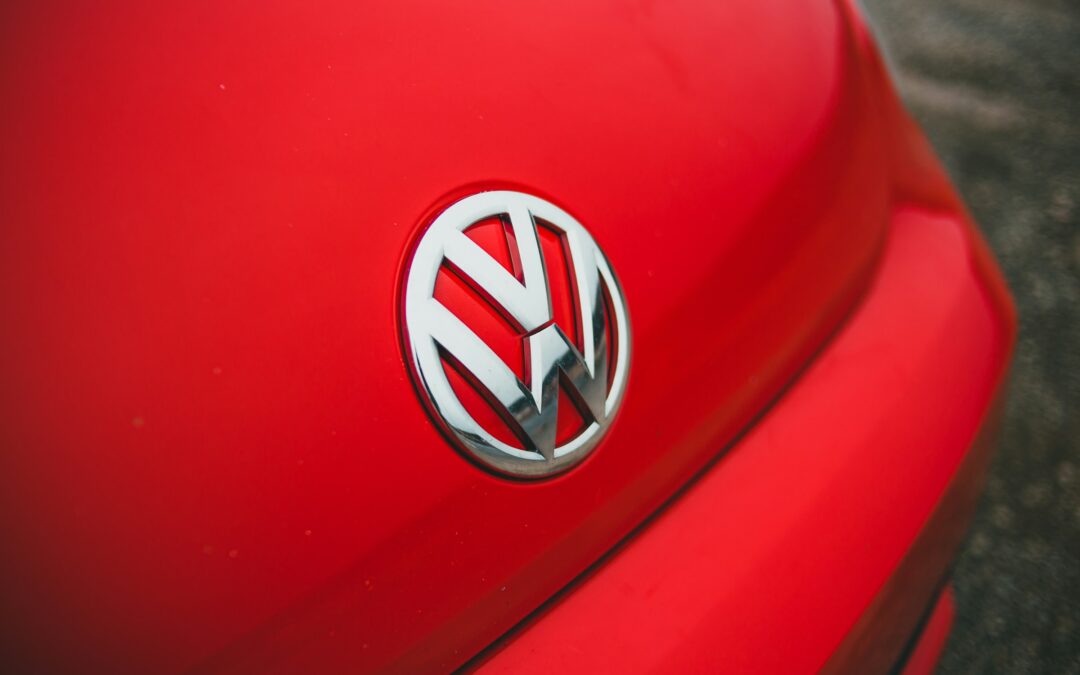Volkswagen is at the center of a data protection debate. The VW subsidiary Cariad has unintentionally stored the movement data of 800,000 Electric cars stored in the Amazon cloud. This discovery raises questions about the security of customer data in the era of Electromobility on.
The data concerned vehicles from the VW, Seat, Audi and Skoda brands. Particularly explosive: precise location data was available for 460,000 cars. This information could provide insights into the lives of the owners. The Chaos Computer Club uncovered this security vulnerability.
VW reacted quickly and closed the gap. Nevertheless, the question remains: how secure is our data in the networked world of Electric cars? This situation shows the challenges of handling transaction data in the cloud.
Key findings
- Cariad stored data from 800,000 e-cars unprotected
- Precise location data of 460,000 vehicles were visible
- Brands such as VW, Seat, Audi and Skoda were affected
- The Chaos Computer Club uncovered the security vulnerability
- VW has now closed the gap
- Privacy with Electric cars moves into focus
Introduction to VW electric mobility
Volkswagen is focusing heavily on electric cars and is driving forward the development of innovative mobility solutions. The Group plans to launch over 30 new electric models in 2024 to increase demand.
What is electromobility?
Electromobility refers to the use of vehicles with electric motors. VW is developing models such as the ID.3 and ID.4, which drive purely electrically. One highlight is the planned ID.2all - an affordable small car with an electric drive starting at 25,000 euros.
Significance for the environment
Electric cars play an important role in protecting the environment. They do not emit any direct CO2 emissions and help to improve air quality in cities. VW is committed to sustainable production and evaluates suppliers according to environmental criteria.
VW's role in electromobility
Volkswagen is driving forward the electrification of its fleet. The Group is collecting Mobility data on charging behavior and battery condition in order to further develop the technology. Despite challenges such as the loss of subsidies, VW is focusing on innovation and digitalized supply chains.
| Key figure | Value |
|---|---|
| Planned new e-models 2024 | Over 30 |
| Forecast sales increase 2024 | 3% |
| Operating profit 2023 | 17.9 billion euros |
| Planned improvement in earnings | 10 billion euros |
The role of transaction data
Movement data plays a central role in modern vehicle technology. The Vehicle telematics makes it possible to collect valuable information about the use and performance of vehicles.
Definition of transaction data
Movement data includes GPS coordinates and vehicle location information. At VW and Seat, this data was stored to an accuracy of 10 cm, while at Skoda and Audi an accuracy of 10 km was achieved. This precision enables a detailed analysis of driving behavior.
Use in retail and marketing
The collected data has a wide range of applications. In retail, it can be used to optimize locations and supply chains. Marketing experts use the information to develop targeted advertising campaigns and better understand customer behavior.
Advantage for vehicle development
For the Automotive industry offers the Data analysis enormous advantages. By analyzing movement data, manufacturers such as VW can Reach optimization and adapt the vehicle software. This leads to more efficient and customer-oriented vehicles.
| Data type | Area of application | Benefit |
|---|---|---|
| GPS coordinates | Reach optimization | Improved battery efficiency |
| Charging behavior | Software optimization | Customization of the charging software |
| Vehicle use | Product development | Customer-oriented innovations |
However, the use of transaction data also harbors risks for the Privacy the user. It is important to strike a balance between innovation and Privacy to find.
Data analysis enables us to continuously improve vehicle performance and at the same time increase comfort for our customers.
Overview of cloud technology
Cloud computing is revolutionizing the automotive industry. Volkswagen uses this technology to Data storage and processing. The cloud offers flexible solutions for the growing demands of digital transformation.
What is cloud computing?
Cloud computing enables access to IT resources via the Internet. Companies such as Volkswagen can store and process data without having to operate their own servers. This saves costs and increases flexibility.
Advantages of the cloud for car manufacturers
Volkswagen benefits from the cloud through:
- Faster development times for new vehicles
- Improved Data analysis for customer needs
- More efficient supply chains through networking
Application examples in the automotive industry
Volkswagen sets Cloud computing in a variety of ways:
- The "Volkswagen Industrial Cloud" networks 124 plants
- MOIA uses AWS IoT for fleet management
- Audi's 3D configurator increases upselling by 1,200 euros per vehicle
The cloud enables Volkswagen to shorten development times and open up new business models. Despite challenges such as the Cariad initiative, VW remains committed to cloud technology in order to remain competitive.
How VW collects movement data
VW uses advanced technologies to Data collection in the Electromobility. The Volkswagen app plays a central role in the collection of movement data. It provides important information on the vehicle's condition and enables Volkswagen to collect valuable data for the further development of its electric cars.
Technologies for data collection
The VW electromobility movement data cloud includes various technologies. GPS systems record location information, while sensors monitor battery charge levels and inspection status. This data is transmitted to the cloud in real time and processed there.
Processes and systems
The Data collection takes place via a complex network of systems. VW uses state-of-the-art cloud technologies to store and analyze the collected information. Data processing enables VW to gain insights into user behaviour and optimize the performance of its electric vehicles.
| Brand | Accuracy of the geodata | Vehicles affected |
|---|---|---|
| VW and Seat | 10 centimeters | Over 800,000 |
| Audi and Skoda | 10 kilometers |
Anonymization of data
VW attaches great importance to the protection of Privacy of its customers. The data collected is anonymized in order to protect personal information. Nevertheless, the Data collection a sensitive topic that raises questions about data protection and an open discussion required.
Data protection in connection with transaction data
The discovery of movement data from 800,000 e-cars in Europe in an unprotected cloud storage facility raises important questions about data protection. This situation affects not only VW, but also Seat, Audi and Skoda.
European General Data Protection Regulation (GDPR)
The GDPR regulates the handling of personal data in the EU. In the case of the VW data breach Precise location data of 460,000 vehicles, which made it possible to draw conclusions about the vehicle owners. This could constitute a violation of the GDPR represent.
Data protection agreements
The Data storage violated VW's own terms and conditions, which provided for a reduction in geodata. Modern cars collect huge amounts of data that allow conclusions to be drawn about usage profiles and driving styles. This practice requires strict data protection agreements.
| Country | Vehicles affected |
|---|---|
| Germany | 300.000 |
| Norway | 80.000 |
| Sweden | 68.000 |
| Great Britain | 63.000 |
Consumer rights
Consumer rights in the area of data protection are central. VW emphasizes that customers can deactivate online functions in order to avoid data processing. Nevertheless, the question remains as to whether this is sufficient to Consumer rights to protect.
The incident shows the need for increased Transparency and improved security measures when handling transaction data. Consumers should be informed about and have control over the collection and use of their data.
Current developments at VW
The VW electric mobility is the focus of the Group's current developments. Volkswagen is pressing ahead with its electrification strategy, focusing on innovative technologies and sustainable solutions.
Latest initiatives in electromobility
VW plans to offer around 50 purely battery-electric models worldwide by 2030. The company is aiming to drive more than half of its new vehicles purely electrically. These ambitious targets underline VW's commitment to electromobility.

Strategies for data security
Following the discovery of a security vulnerability, VW reacted quickly and closed it. The Group emphasizes that no one other than the CCC has accessed the data. To close the Data security VW is planning to improve its IT competence. These measures are intended to increase customer confidence in the Data security strengthen.
Future plans for cloud use
The Cloud usage plays a central role in VW's plans for the future. The Group is working on making its cloud infrastructure more secure. In doing so, VW is relying on state-of-the-art technologies and strict security protocols. These efforts are aimed at increasing efficiency and at the same time protecting sensitive data to ensure that
| Goal | Description | Time frame |
|---|---|---|
| Electric vehicle share | Increase to over 50% | By 2030 |
| Model portfolio | Complete electrification | By 2030 |
| CO2 emissions | Reduction to under 50 g CO2/km | 2030 |
These developments show that VW is determined to expand its position as a leading provider in the field of electric mobility and at the same time to Data security and Cloud usage to optimize.
The challenges of data security
The discovery of movement data from VW electric cars in the cloud raises serious questions about data security. At a time when only one in three consumers in Germany consider connected vehicles to be useful, car manufacturers are facing major challenges.
Risks of data breaches
The security vulnerability at VW potentially allowed access to sensitive data. Vehicle data. This entails considerable risks for the Privacy of the user. Data from vehicles in the vicinity of security facilities is particularly sensitive. The creation of movement profiles could lead to blackmail or stalking.
Cyberattacks on vehicle data
Cyberattacks pose a growing threat. An investigation of the Mercedes B-Class revealed that GPS positions and status data were transmitted to the Mercedes backend every two minutes. Such data transmissions make vehicles vulnerable to hacker attacks.
Preventive measures by VW
VW is working intensively on improving its security measures. The Group relies on advanced encryption technologies to protect the Vehicle data. VW is also committed to integrating data security into its environmental management systems and is aiming to reduce its environmental impact by 45% per vehicle by 2025.
The Automotive industry faces the challenge of reconciling innovation and data protection. This is the only way to strengthen consumer confidence in connected vehicles.
VW's transparency about transaction data
Volkswagen relies on Transparency in the use of transaction data. The car manufacturer communicates openly about its Data usage and takes Customer feedback serious.
Public relations and communication
VW actively provides information on the handling of transaction data. Following the discovery of a security vulnerability, the Group reacted quickly and emphasized that no sensitive data were affected. This open communication strengthens customer confidence.
Reports on data usage
Volkswagen plans to Transparency further increase. In future, customers are to be better informed about the use of their data. This is also reflected in the plans for new electric models:
- 16 ID models by 2030
- 5 electric cars under ID.UX by 2027
- Introduction of the ID.UNYX in 2024
Feedback from customers and interest groups
VW attaches importance to Customer feedback to the Data usage. Concerns of data protection experts are taken seriously. The Group is working on solutions that combine innovation and data protection. This is reflected in new technologies such as the ID. CODE:
- Level 4 autonomous driving
- Interactive lighting systems for communication
- AI-supported avatars for driver information
These measures demonstrate VW's efforts to reconcile transparency and data protection.
The consumer perspective
The debate about movement data from VW electric cars highlights the concerns of users. Consumer protection is at the center of the discussion. A survey shows that the majority of drivers in Germany are still skeptical about electric vehicles.
User concerns
Many consumers are concerned about their privacy when using electric cars. The possibility of creating detailed movement profiles unsettles potential buyers. A study found that over 75% of respondents neither own an electric car nor plan to buy one.

The importance of transparency
Data transparency plays a decisive role in consumer confidence. The survey shows that consent to the use of big data prevails when a concrete benefit is recognizable. VW must start here and clearly communicate how the collected data will be used.
Ensuring data protection
The protection of privacy is of paramount importance to consumers. VW faces the challenge of developing innovative technologies and ensuring data protection at the same time. This is the only way the company can regain the trust of customers and increase the acceptance of electric vehicles.
"Sustainable business is based on an organization's relationships with the groups involved." - Klaus Schwab on stakeholder capitalism
Taking the consumer perspective into account is crucial for the success of electromobility. VW must take these concerns seriously and actively work on solutions that combine both innovation and data protection.
Comparisons with other car manufacturers
The Automotive industry faces major challenges in the Use of data. A study by the Mozilla Foundation 2023 shows that many manufacturers have more Collect data than necessary. VW's case is not unique, but it is particularly extensive.
Other brands' approaches to data usage
Different car manufacturers handle data differently. Some brands focus on transparency and clear guidelines. Others are less open. A comparison reveals interesting differences:
| Manufacturer | Data protection approach | Transparency |
|---|---|---|
| VW | Extensive data collection | Need for improvement |
| Tesla | Innovative Data usage | Partially transparent |
| BMW | Strict data protection guidelines | High transparency |
Comparison of data protection measures
Best Practices in data protection vary greatly. Some manufacturers invest in advanced encryption technologies. Others rely on minimal data collection. The industry needs to find a balance between innovation and privacy.
Lessons from the experience of others
The automotive industry can learn from VW's case. Transparency and clear communication are crucial. Manufacturers should regularly review their data protection practices. This is the only way they can gain and retain the trust of their customers.
Use of data in the automotive industry requires responsibility and transparency. This is the only way we can develop innovative technologies and protect privacy at the same time.
The future of VW electric mobility and data processing
Volkswagen is increasingly focusing on electromobility and innovative data processing. The car manufacturer plans to use its data analysis to improve battery and charging software. This is reflected in the ambitious targets for the charging infrastructure.
Trends in data usage
VW uses data analysis to optimize products and business processes. Processing is carried out in cooperation with subsidiaries and external partners. Strict data protection guidelines are adhered to.
Improving the user experience
The use of data is aimed at improving User experience off. One example is the expansion of the charging network. Audi customers have access to 580,000 charging points in Europe via Elli - an increase of 55% on the previous year. This shows VW's commitment to practical solutions in electric mobility.
Sustainability through data analysis
VW also uses data analysis for sustainability targets. The Audi e-tron GT quattro consumes 19.6-21.6 kWh/100 km with zero CO₂ emissions. VW is the first automotive company to trade on the EPEX SPOT electricity exchange in order to increase energy efficiency.
The future of VW electric mobility lies in the intelligent use of data. Through targeted data analysis, VW continuously improves the User experience and drives sustainable innovation.
Conclusion: Balance between innovation and data protection
The incident with VW's electric cars shows the complexity of innovation competition in the automotive industry. With a turnover of 564 billion euros in 2023, the German automotive industry faces the challenge of remaining a technological leader while at the same time protecting data privacy.
Necessity of innovation competition
The investment of 28.7 billion euros in research and development in 2022 underlines the importance of innovation competition. In view of the high cost of electricity and the slow expansion of the charging infrastructure, companies need to find creative solutions to remain competitive.
Corporate responsibility
With 780,000 employees, car manufacturers such as VW play a major Corporate responsibility. They not only have to develop innovative products, but also guarantee their customers' data protection. This is particularly important in view of the fact that Germany only ranks 48th in the world for mobile internet.
Summary of the most important points
The automotive industry is facing a variety of challenges: from a shortage of skilled workers to digital infrastructure. To overcome these, a balanced strategy is required that promotes innovation while respecting data protection. This is the only way the industry can maintain its leading position and retain consumer trust.
